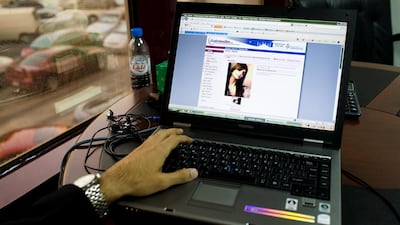"It helped me to know I wasn't alone and to be strong in what I want from my own life, including getting married," wrote the young woman who recently messaged me on Twitter to tell me she had just finished reading my first book, Love in a Headscarf.
It's exactly a decade since the publication on Valentine's Day of my memoir, part coming-of-age autobiography, part commentary, on what it meant to be a young Muslim woman in Britain, trying to find her way in this world. I pegged the story to my search for love and marriage because it was in the process of this search, with its many constraints, frustrations and injustices, that I found my own voice and worked out who I was.
For my parents' generation, the most common route to finding a spouse was an arranged marriage; marrying for love was rare at the time. Usually the suitor would be someone suggested by extended family and came from a similar background – sometimes even the same community – and spoke the same language. When I myself was looking to settle down in the early 2000s, not much had changed. But living in a country where there were fewer prospects of meeting someone like-minded meant my options were limited. I was part of a generation that pushed the boundaries and explored new avenues because my needs were more nuanced.
Of all the huge social, cultural and political changes we've experienced since then, the biggest when it comes to love and marriage is undoubtedly a technological revolution. The emergence of the internet and social media and the explosion in the number of websites and apps dedicated to finding the perfect spouse have transformed the matrimonial process for Muslims.
When I wrote my book, newly emerging online matchmaking services were considered highly suspect and anyone who found their match online would most likely be coy about how they met. People rarely posted their photos and most profiles were kept anonymous. Women and their families feared being judged for making known their desire to get married. Now a profile will have pictures, names and details and might be accompanied by social media links too.
The UK-based website SingleMuslim.com has 2.2 million members registered worldwide and says more than half of all Muslim 16 to 64-year-olds in Britain have used its services. Nor is that the only option available. There is also Minder (commonly known as the Muslim Tinder, with the slogan "Swipe. Match. Marry" and the selling point "who has time to go and meet everyone your auntie recommends for you?"), Muzmatch, promising "halal, free fun" and SalaamSwipe (tagline: "providing you with the right people based on self-identified levels of religiosity, proximity and interests, we're no different from traditional matchmaking, except we've taken your aunty out of the equation"). And those are just a few of the channels which have appeared in the last few years. There are dozens of others around the world and in different languages, all dedicated to Muslims wanting to find a matrimonial partner.
But young, digital-savvy Muslims are swimming in bigger matchmaking pools not specifically aimed at people from the same background but still within religious parameters. Culture and ethnic origin are still important, which explains the high level of engagement with sites like Shaadi.com, aimed at those with ties to the Indian subcontinent, and LoveHabibi for those from the Arab world. Some even use more mainstream apps like Tinder but specify they are looking for Muslim spouses.
All of this is due in large part to the openness of social media and the growing ease with which people feel comfortable about publicly posting the minutiae of their lives. It also has a great deal to do with Muslim women becoming more confident about expressing their opinions on public platforms – something that might once have been frowned on in traditional communities and considered an impediment to their marital prospects. Such negative attitudes of young women undoubtedly persist in some places but those women are less inhibited by them. Marriage is now something they negotiate on their own terms rather than suppressing their personalities and jumping through hoops to "bag" a husband. As women become increasingly self-sufficient, educated and career-orientated, marriage is no longer the ultimate goal. In the UAE, for example, nearly 90 per cent of the students who registered in 2016 for courses at Zayed University, the United Arab Emirates University and the Higher Colleges of Technology were women. Meanwhile, a 2013 survey by the Statistics Centre Abu Dhabi found Emiratis of both sexes were waiting longer to get married.
There are, however, perils attached to the uncharted waters of technology. Horror stories abound of the bad apples who hide their married status or trick women into thinking they have serious intentions. These are all issues that accompany generic dating websites of course but Muslim matrimonial sites come with their own set of challenges. Call me old fashioned but I still think some of the formalities of arranged marriages, and the scrutiny of prospective partners and vetting process that comes with them, bring safety and security to a match, for both men and women.
But what I love most about today’s possibilities for Muslim women is that they have agency in their own search, without fear of reprisal or judgment. A decade on from publishing my own story of looking for love – and a husband and two daughters later – knowing that Muslim women are increasingly becoming authors of their own destiny is one of the most thrilling aspects to matchmaking in the modern era. It makes me even more excited to hear what stories about searches for love might be told in the future.
Shelina Janmohamed is the author of Love in a Headscarf and Generation M: Young Muslims Changing the World


